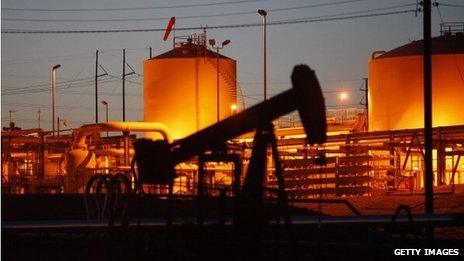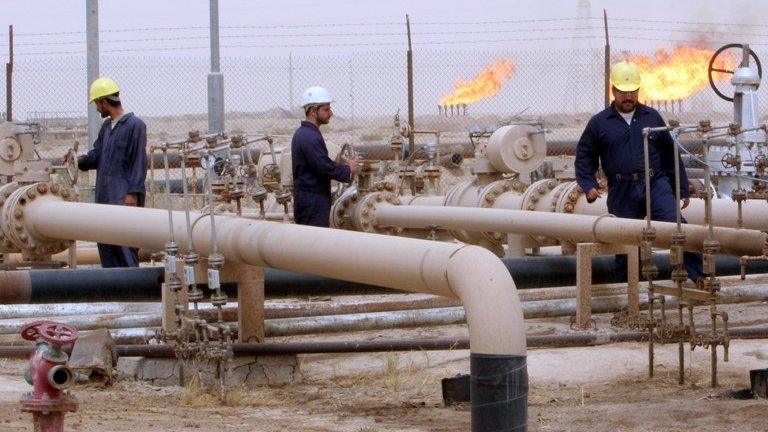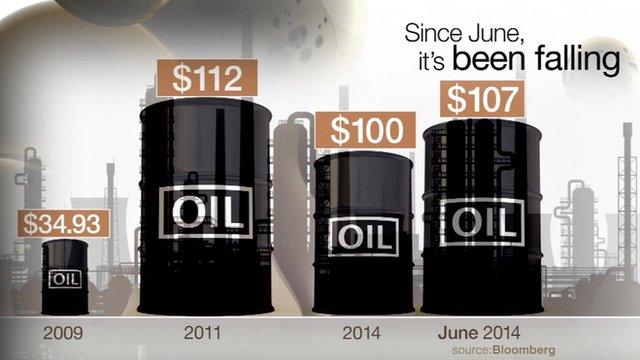Oil prices likely to fall further, says IEA
- Published

Oil prices are likely to continue falling well into 2015, the International Energy Agency has said.
The IEA, external, a consultancy to 29 countries, said weak demand and the US shale gas boom meant crude's recent fall below $80 a barrel was not over.
On Friday, Brent crude, one of the major price benchmarks, traded at $78.13 a barrel, near a four-year low.
"It is increasingly clear that we have begun a new chapter in the history of the oil markets," the IEA said.
"Barring any new supply problems, downward price pressures could build further in the first half of 2015."
The organisation, set up after the "oil shock" of the early 1970s to advise major oil importing countries, said that pressure was building on the Opec oil producers' group to restrict supply to bolster prices.
However, there have been reports that Saudi Arabia, Opec's key member, is not yet willing to turn off the taps. Opec members are due to meet on 27 November to discuss the supply and demand issues.
Most Opec members rely on oil revenues to support economic growth and spending.
Also, it is likely that oil and gas explorers will become increasingly worried that falling prices will make exploration uneconomical.
Brent has fallen for eight weeks in a row, its longest losing streak since 1988, according to Reuters' data.
The US energy department said this week that it expected low fuel prices to last into next year.
Earlier this week, the IEA's Global Outlook, a report into the industry's long-term challenges, warned that the US shale gas boom was masking serious risks to global energy security.
- Published12 November 2014

- Published6 November 2014

- Published6 November 2014

- Published19 January 2015
